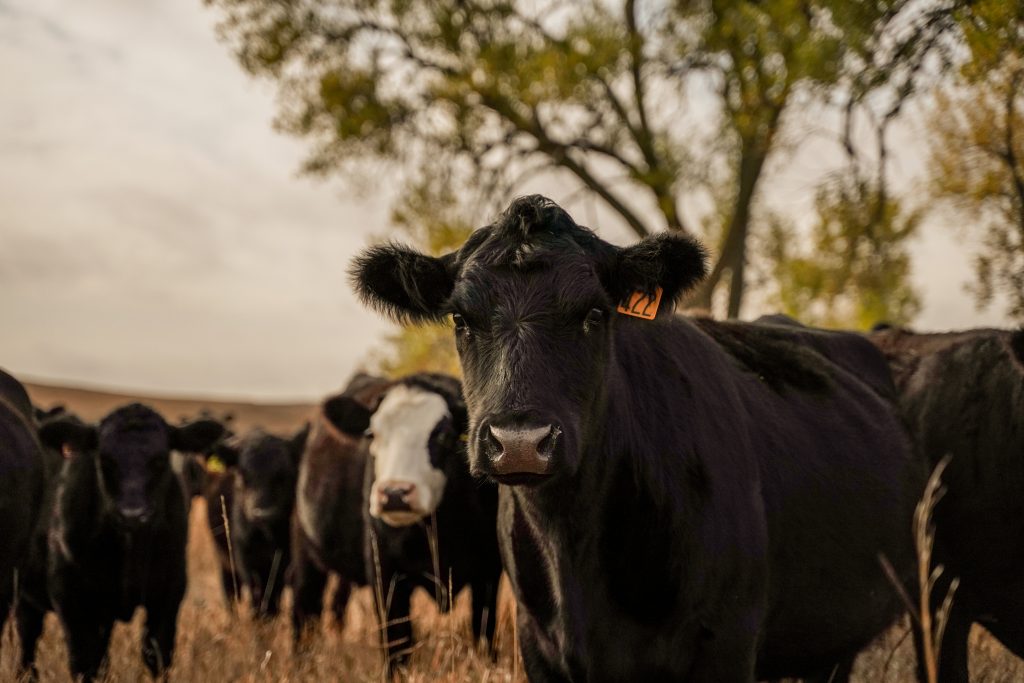Opportunities and challenges: Beef industry advocates continue work in new administration

At the Wyoming Stock Growers Association Wyoming Cattle Industry Convention & Trade Show held in Sheridan June 2-4, National Cattlemen’s Beef Association (NCBA) Director of Governmental Affairs Danielle Beck shared her perspective on challenges and opportunities facing agriculture and the beef industry.
“For every challenge, there is an opportunity and for every opportunity, there is a challenge,” she shared, noting working with new faces in both the White House and Congress present many challenges. However, there is an opportunity to educate every new individual of the work of NCBA membership, the strides beef producers in the U.S. have made in conservation and why beef needs to be at the center of plates.
Time to educate
Time, Beck explained, is the greatest challenge, as there are 17 days of voting left in 2021.
“We are currently not moving any appropriation bills, and this is the most delayed appropriation process I’ve ever seen,” said Beck. “We will likely have another continuing resolution if a budget is not passed before Sept. 30.”
While Congress is still moving through confirmations and nominations, there are many other items on the long list of tasks to complete in a short amount of time.
“In looking at some of the pitfalls or challenges within the industry, the less time there is the better, because this is an opportunity to protect the industry and make sure bad policy doesn’t become bad law,” she noted. “The agencies we have been working with have revolving doors, and there are always new faces to educate.”
Balancing act
The top three issues for the beef industry Beck shares, from the NCBA perspective, are climate, the upcoming farm bill and infrastructure.
“Kaitlynn Glover leads the natural resources team and she has been a fierce, tenacious advocate in keeping this line open,” Beck said. “When the 30×30 Plan was being written, and as it became the American the Beautiful Plan, she was on the phone with people every day from Congressmen to ranchers.”
Beck explained this plan requires some work and definition to be final.
The next farm bill is slated for 2023, which Beck shared provides some time to advocate for good policy that benefits agriculture, but not much.
“I will not be surprised if from the left side of the aisle we see all sorts of crazy proposals by people who don’t understand this industry or these businesses,” Beck stated, noting a government mandate for traceability or funding for plant-based protein have a great likeliness to be included.
“On the flip side, the farm bill will represent tremendous opportunities,” she continued. “I don’t think we can wait for the farm bill when it comes to increasing processing capacity in the U.S., and the U.S. Department of Agriculture (USDA) has a supply chain resiliency comment period open through June 21. The USDA has looked towards NCBA as a resource, and want to be educated. We have been really happy about how the conversations have been going.”
When it comes to infrastructure, the American Jobs Plan included funding for roads, bridges and other types of hard, physical infrastructure improvements. Though Beck shares there are concerns in this administration’s broadening of infrastructure.
“The definition of infrastructure is as murky as conservation,” she said. “The American Family Plan addresses and provides trillions of dollars in funding for human infrastructure, and there are some changes which are quite concerning to me.”
Other opportunities
On top of legislative and regulatory solutions, Beck shared NCBA is also working on expanding marketing opportunities, helping beef producers reach new sets of consumers and allowing consumers to continue to feel good about eating beef.
“Part of this work is through checkoff marketing, but also comes in the form of nutrition bills, school meals and programs to provide food in under supplemented areas,” she explained. “There are all great opportunities for beef, and beef has the upper hand over plant-based protein and meat alternatives when it comes to both human nutrition and cost.”
Averi Hales is the editor of the Wyoming Livestock Roundup. Send comments on this article to roundup@wylr.net.





